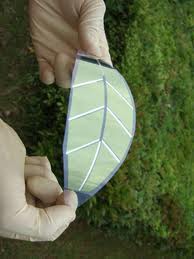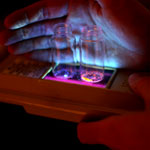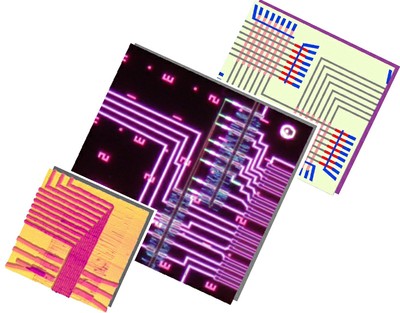Hydrogen fuel available at petrol stations for consumers
Cella Energy was named the UK national winner for the Shell Springboard Awards 2011, for developing a technology which allows hydrogen to be stored...
Nanotechnology has increased efficiency of organic solar cells
In the solar energy field researchers are using the latest developments in nanotechnology to work on very small solar cells. Researchers are testing different...
Artificial photosynthesis to create cheap hydrogen for fuel
The production of cheap hydrogen for automotive or jet fuel may be possible by mimicking photosynthesis, according to a Penn State materials chemist,...
Water to Power Mobile Electronics
This week, SiGNa Chemistry Inc. unveiled its new hydrogen cartridges (Mobile-H2™), which provide energy to fuel cells designed to recharge cell phones, laptops and...
Rare-Earth Elements Provides 25 Precent Greater Thermoelectric Conversion Efficiency
Thermoelectric materials and technology have powered spacecraft for decades. But, thanks to advances in efficiency discovered at Ames Laboratory, thermoelectric materials may have new,...
Nonvolatile memory based on ferroelectric – graphene field – effect transistors
A fundamental component of a field-effect transistor (FET) is the gate dielectric, which determines the number of charge carriers—electrons or electron vacancies—that can be...
Nanoparticle network to convert sunlight more efficiently than silicon
A Colorado State University professor has successfully turned a mineral compound into a material that can pass current through a nanoparticle network – an...
A new class of light-emitting material could lead to cheaper OLEDs
Pure organic compounds that glow in jewel tones could potentially lead to cheaper, more efficient and flexible display screens, among other applications.
Michigan Engineering researcher...
New Type of Biochemical Hydrogel Sensor to Detect pH
Scientists have used gelatinous hydrogel to create an inexpensive new type of biochemical hydrogel sensor that is highly sensitive, sturdy, long-lasting, and has few...
The world’s first programmable nanoprocessor unveiled
Engineers and scientists collaborating at Harvard University and the MITRE Corporation have developed and demonstrated the world’s first programmable nanoprocessor.
The groundbreaking prototype computer system,...








